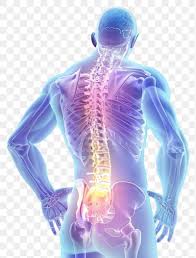Anxiety disorder is a common mental health condition that affects millions of people worldwide. It encompasses various disorders, including generalized anxiety disorder (GAD), panic disorder, social anxiety disorder, and specific phobias. Understanding the causes, symptoms, and treatments of anxiety disorders is critical for those affected and their loved ones.
What is anxiety disorder?
Anxiety disorder is characterized by excessive, persistent worry and fear about everyday situations. Often, these feelings are intense, debilitating, and disproportionate to the real threat the situation poses. While anxiety is a normal stress response, it becomes a disorder when the anxiety is overwhelming, uncontrollable, and interferes with daily activities.
Causes of Anxiety Disorder
The causes of anxiety disorder are complex and multifaceted, involving a combination of genetic, environmental, psychological, and biological factors.
Genetic Factors
Research indicates that anxiety disorders can run in families, suggesting a genetic predisposition. Specific genes may influence brain chemistry and how the brain regulates anxiety, making some individuals more susceptible to anxiety disorders.
Environmental Factors
Environmental stressors, such as trauma, abuse, and significant life changes, can trigger or exacerbate anxiety disorders. Chronic stress from work, relationships, or financial problems can also contribute to the development of anxiety.
Psychological Factors
Personality traits and coping mechanisms play a significant role in anxiety disorders. Individuals with certain personality types, such as those who are more prone to negativity or have a low tolerance for uncertainty, may be more likely to develop anxiety disorders.
Biological Factors
Neurotransmitters like serotonin, dopamine, and norepinephrine are involved in regulating mood and anxiety. These chemical imbalances can contribute to the development of anxiety disorders. Additionally, certain medical conditions, such as thyroid problems or heart arrhythmias, can mimic or trigger anxiety symptoms.
Anxiety disorder symptoms
The symptoms of anxiety disorder can vary widely depending on the specific type of disorder, but they generally include both emotional and physical manifestations.
Emotional Symptoms
-
Excessive concern about everyday activities or situations
-
There are feelings of restlessness or being on edge.
-
Irritability and impatience
-
Difficulty concentrating or mind going blank
-
Unreasonable fear of impending doom.
Physical Symptoms
-
An increased heart rate or palpitations
-
Shortness of breath or hyperventilation
-
Sweating, trembling, or shaking
-
Muscle tension or aches
-
Fatigue or difficulty sleeping
-
Gastrointestinal problems, such as nausea or diarrhea
Diagnosing Anxiety Disorder
To diagnose anxiety disorder, a healthcare professional will conduct a comprehensive evaluation, including a medical history, physical examination, and psychological assessment. They may use standardized questionnaires or interviews to determine the severity and impact of the symptoms.
Treatments for anxiety disorders
Treatment for anxiety disorder typically involves a combination of therapy, medication, and lifestyle changes. The goal is to manage symptoms, reduce the frequency and intensity of anxiety episodes, and improve overall functioning.
Therapy
Cognitive-behavioral therapy (CBT) is one of the most effective treatments for anxiety disorders. CBT helps individuals identify and challenge negative thought patterns and behaviors that contribute to their anxiety. Exposure therapy, a type of CBT, involves gradually facing feared situations to reduce sensitivity to them.
Medication
Medications can be effective in managing anxiety symptoms, especially when combined with therapy. Commonly prescribed medications include:
-
Antidepressants: To treat anxiety disorders, clinicians often use selective serotonin reuptake inhibitors (SSRIs) and serotonin-norepinephrine reuptake inhibitors (SNRIs).
-
Benzodiazepines: Due to the risk of dependence, these fast-acting medications typically only serve as short-term treatments for anxiety symptoms.
-
Beta-blockers: People occasionally use these drugs to treat physical anxiety symptoms like a fast heartbeat.
Lifestyle Changes
Incorporating healthy habits and coping strategies can significantly reduce anxiety symptoms. Recommendations include:
-
Regular Exercise: Physical activity can help reduce stress and improve mood.
-
Healthy Diet: Eating a balanced diet can positively affect overall mental health.
-
Sleep Hygiene: Ensuring adequate and quality sleep is crucial for managing anxiety.
-
Mindfulness and Relaxation Techniques: Practices such as meditation, deep breathing exercises, and yoga can help calm the mind and reduce anxiety.
Coping and Support
Living with an anxiety disorder can be challenging, but various coping strategies and support systems can help. Joining a support group can provide a sense of community and understanding. Engaging in hobbies and activities that bring joy and relaxation can also be beneficial.
Self-Care
Prioritizing self-care is essential for managing anxiety. This can include setting boundaries, taking time for oneself, and engaging in activities that promote relaxation and well-being.
Professional Support
Seeking professional support from therapists, counselors, or support groups can provide valuable resources and strategies for managing anxiety. Regular check-ins with a healthcare provider can help monitor progress and adjust treatment plans as needed.
Conclusion
Anxiety disorder is a complex condition that requires a comprehensive approach to treatment and management. By understanding the causes, recognizing the symptoms, and exploring various treatment options, individuals with anxiety disorder can take proactive steps toward improving their mental health and overall quality of life. With the right support and strategies, it is possible to manage anxiety and lead a fulfilling, balanced life.



